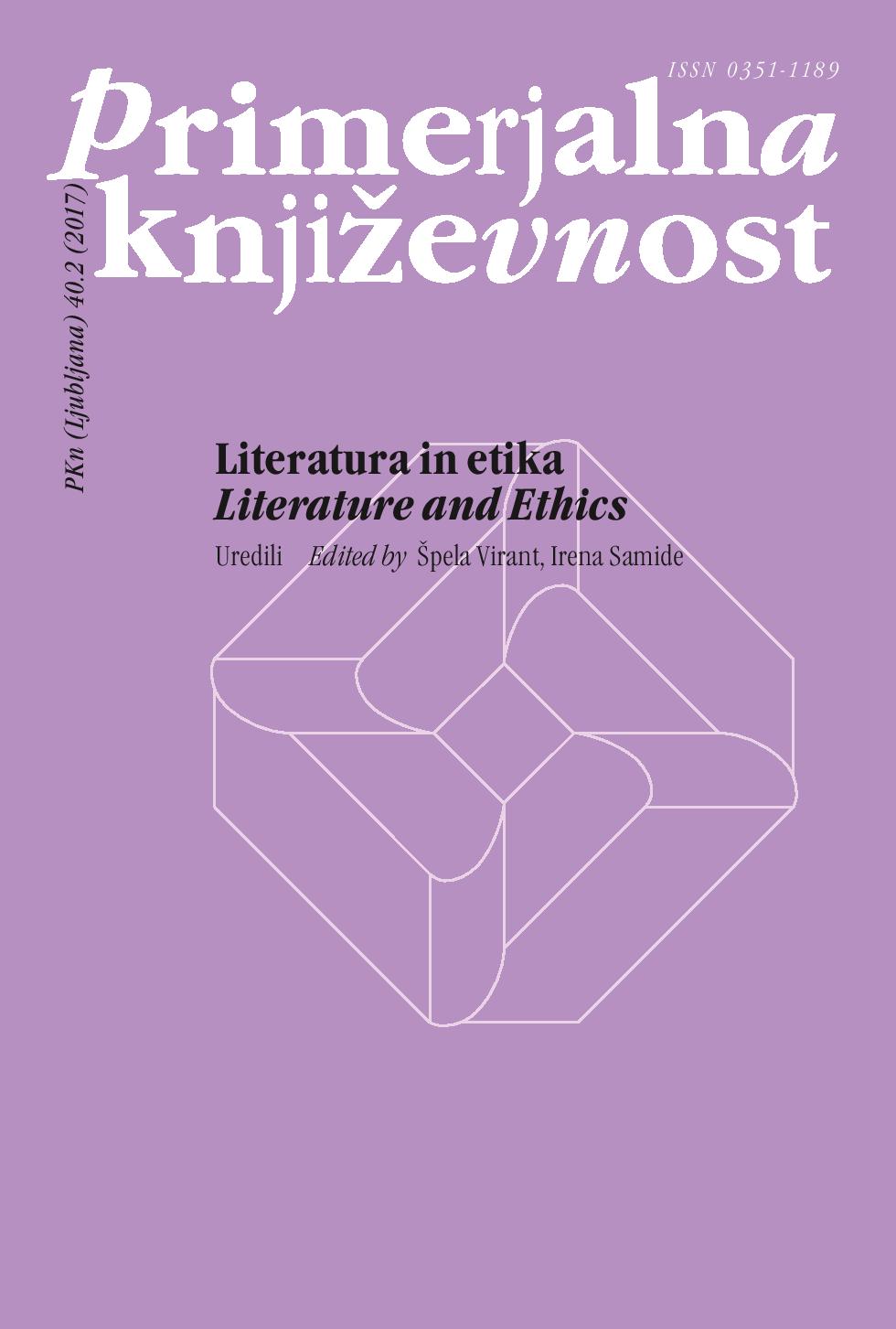Staging the Ethical in the State of Emergency in J. M. Coetzee’s Waiting for the Barbarians
Keywords:
literature and ethics, South African literature, Coetzee, J. M., Waiting for the Barbarians, Agamben, Giorgio, Homo SacerAbstract
In this article I analyze the novel by J. M. Coetzee, Waiting for the Barbarians (1980), in an attempt to show how it stages an insufficiency of the ethical reaction, by positioning it upon a social stage which determines its reach and effects. I proceed by reading this stage in the categories of Giorgio Agamben’s concept of the state of emergency, which spans throughout all of the novel’s events, and defines the relations between its main characters, the Magistrate (novel’s narrator and protagonist), the “barbarian girl”, and Colonel Joll. My main focus rests on two episodes: firstly, I present how the Magistrates supposed humane treatment of the “barbarian girl” is in fact only a humanization of the imperial domination, and secondly I analyze the scene of mass torture of the “barbarians”, led by Colonel Joll, in which the Magistrate’s reaction is shown to be misplaced and insufficient. Finally, by reverting to Badiou’s understanding of ethics, I show that both the Magistrate and Colonel Joll function within the boundaries of the imperial logic, and how the Magistrate’s ethical reactions remain ineffective precisely because they do not question the very foundations, the supposed universal law, from which they stem, and therefore never manage to reach the objective level of action. In this sense Coetzee’s novel, on the level of form, fulfils that which is presented as lacking on the level of its content – by making its readers find a position outside of the logic of its characters, it presents them with the insufficiency of ethics devoid of any relation to politics.References
Agamben, Giorgio. Homo Sacer: Sovereign Power and Bare Life. Stanford: Stanford UP, 1998.
Ashcroft, Bill. “Irony, Allegory and Empire: J. M. Coetzee’s Waiting for the Barbarians and In the Heart of the Country.” Bill Ashcroft. On Post-Colonial Futures: Transformations of Colonial Culture. London: Continuum International Publishing, 2001. 140–159.
Attridge, Derek. J. M. Coetzee and the Ethics of Reading. Chicago: University of Chicago Press, 2004.
Attwell, David. South Africa and the Politics of Writing. Berkeley and Los Angeles: University of California Press, 1993.
Badiou, Alain. Ethics: An Essay on the Understanding of Evil. London and New York: Verso, 2001.
Coetzee, J. M. Waiting for the Barbarians. New York: Penguin Books Ltd., 1999.
Crocker, Thomas P. “Still Waiting for the Barbarians: What Is New About Post-September 11 Exceptionalism?” Law and Literature 19.2 (Summer 2007): 303–326.
Engle, Lars. “Western Classics in the South African State of Emergency.” Thresholds of Western Culture: Identity, Postcoloniality, Transnationalism. Eds. John Burt Foster, Jr. and Wayne Jeffrey Froman. New York: Continuum, 2002. 114–133.
Hayes, Patrick. J. M. Coetzee and the Novel. New York: Oxford UP, 2010.
Jameson, Fredric. “Third-World Literature in the Era of Multinational Capitalism.” Social Text 15 (autumn 1986): 65–88.
Lenta, Patrick. “‘Legal Illegality’: Waiting for the Barbarians After September 11.” Journal of Postcolonial Writing 42.1 (May 2006): 71–83.
Poyner, Jane. “Madness and Civilization in Waiting for the Barbarians.” Jane Poyner. J. M. Coetzee and the Paradox of Postcolonial Authorship. Surrey: Ashgate Publishing Limited, 2009. 53–69.


